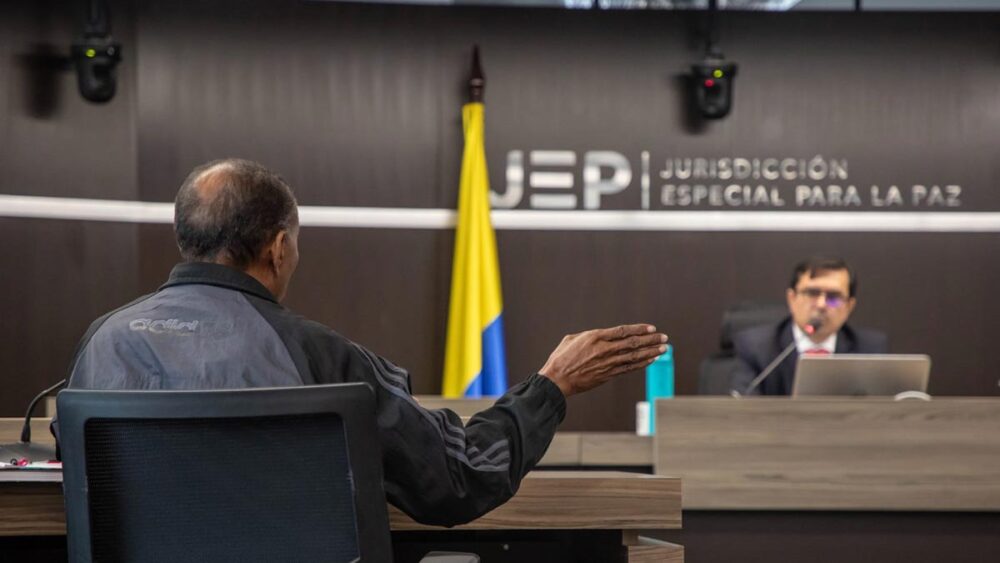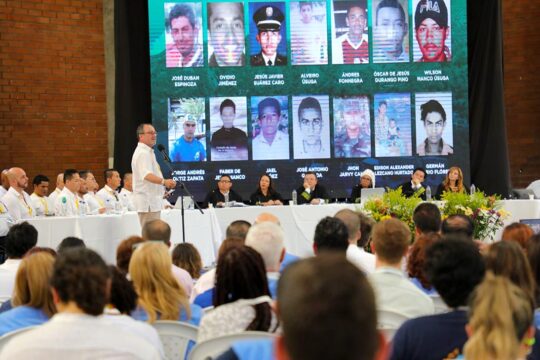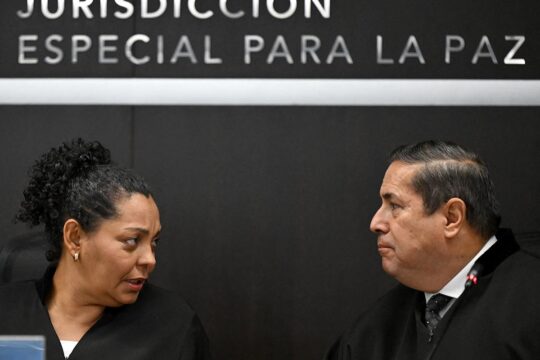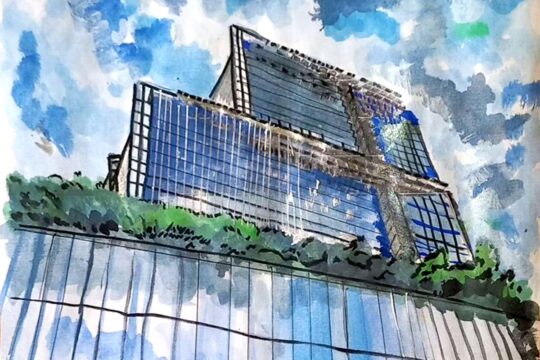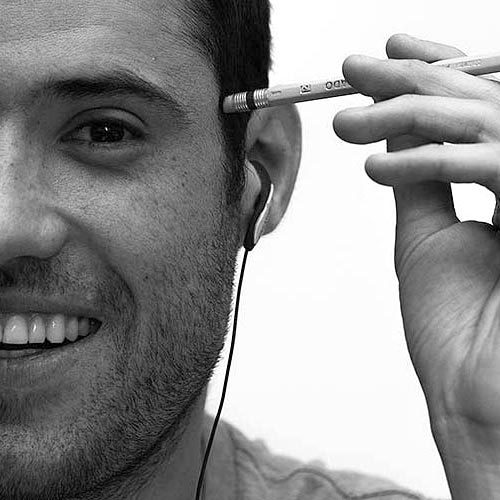In mid-December, the Special Jurisdiction for Peace (JEP) launched a "public invitation" to find 36 senior law clerks. They were looking for highly qualified professionals with eight years of experience and knowledge in areas such as constitutional and criminal law, human rights or international humanitarian law.
It was a long-awaited appointment, as these are the second most important positions in the judicial arm of Colombia's transitional justice system, which stems from the 2016 peace agreement and investigates atrocities committed over a half-century armed conflict. In practice, they are the justices' right hands, helping them conduct investigations, interview witnesses and perpetrators, conduct physical inspections, cross-check evidence, draft legal decisions and lead their teams on a day-to-day basis. It’s also one of the highest paid jobs in the Colombian state: almost $9,400 per month, a figure higher than that of government ministers or the capital city’s mayor.
That was, however, the last public notice of the job offer until the JEP unveiled the list of those selected in early February. In the interim, it failed to provide any public information about the process or the selection criteria, according to ten persons who applied but were not chosen and who told their story to Justice Info. Through conversations with colleagues many applicants learned that people had already been summoned for interviews. They were further surprised when, on February 2, the JEP announced those selected.
Internal documents suggest that the JEP did consider making the process more transparent. But in the end, none of these steps - neither procedure nor lists of registered candidates - were made public. “The move from making the invitation open and public, to then deciding without advertising the procedure and selection criteria, greatly affects the transparency of the selection," said Paola Molano, transitional justice coordinator at the legal think tank Dejusticia. "These opaque decisions affect the credibility of the JEP to the outside world."
A potential controversy
The JEP defends its actions. "It was a process that was taken very seriously and met the expectations of all the chambers and sections, and of their representatives in the governing body. It’s so strategic to us that we ensured we had the best persons," the JEP’s chairman Roberto Vidal told Justice Info. He explained that these are positions of free appointment and removal, that the selection was made by justices sitting in the governing body and that he excluded himself, since the new senior law clerks will work under the presidency. He also pointed out that the selection criteria and candidate lists are "reserved and internal" and that the JEP cannot make them public due to "a legal and normative impossibility." "The reason is strictly legal," he said, without specifying what that norm was.
In the end, the JEP opted, for the most part, for lawyers from within the institution, along with some outsiders, such as María Clara Galvis, former vice president of the United Nations Committee on Enforced Disappearances, or Martha Lucía Zamora, former legal secretary of the JEP a few years ago and until recently director of the National Agency for the Legal Defense of the State in the Gustavo Petro administration.
The latter could be perhaps the most controversial choice because, although she has a long judicial career and was even interim Attorney General, she was also the protagonist of a well publicised spat with a victim now accredited before the JEP. In 2012, when Zamora was a deputy prosecutor, the Attorney General's Office accused former congressman Sigifredo López - who was kidnapped by the former Revolutionary Armed Forces of Colombia (FARC) for seven years - of having planned his own abduction and that of his ten political colleagues who were later murdered, an episode for which the institution publicly apologized to him. That emblematic crime was the focus of the JEP’s most recent indictment against eight regional FARC commanders. Zamora was absolved in 2023 of any responsibility in the irregular detention of López, who accused her of spearheading the investigation against him.
Zamora stressed that her name was cleared in three different investigations at the Colombian Supreme Court, the National Judicial Discipline Commission and a first instance criminal court, underscoring that she didn't order his arrest, lead the inquiry or participate in any witness statements against him. She acknowledged their legal dispute to Justice Info, which she described as "infamy" and "very difficult years", and said that she will ask the JEP not to assign her to the kidnapping case in which López is a victim. "For the sake of transparency and given the background of these two investigations, it would be better not to have any connection with case 01 [even though] formally there are no grounds for disqualification", she told Justice Info. She also added that she'd read news that López had voiced his disagreement with the JEP's decisions and that his lawyer announced he would quit the proceedings. The team in charge of the kidnapping case told Justice Info that indeed López's lawyer had said so during a hearing but that none of them made such a request.
"A blow to internal morale"
"The persons they selected in the end are good. Everyone I know deserves to be there," says one candidate who was not called. But the opacity of the selection process generated unease among applicants, many of whom work or have worked at the JEP in the category just below assistant magistrate. Despite the fact that they have carried much of the daily burden of investigations into such emblematic crimes as kidnappings by the former FARC or extrajudicial executions committed by the military, they earn a third of a senior law clerk’s salary. This was why the call was seen as an opportunity for advancement.
"This was a blow to internal morale, mostly because many of us who are in the chambers don’t see options for recognition over the work we’ve done for several years," says one person who has worked at the JEP for four years. In another applicant’s words, "there wasn’t even an elementary gesture of writing to those not selected and saying 'thank you for participating'".
Upset, many sent petitions to the JEP inquiring about the selection criteria and the reasons for their exclusion. Last week, the legal director responded that a public invitation "provides the head of a public corporation a degree of assessment or discretion in order to choose among those who applied" and that it didn’t require "objective selection criteria since it is not a merit-based competition, but rather the election of positions of free appointment and removal".
In his interview with Justice Info, Justice Vidal insisted that it wasn’t a public employment call and therefore those requirements could not be demanded of the JEP. He dismissed the idea of an undermined morale, noting that "compared to other processes, this isn’t such a large nonconformity" given that the JEP received 69 petitions among 619 candidates. "The collective and reflective nature of the decisions was what gave it a sense of legitimacy and morality," he added.
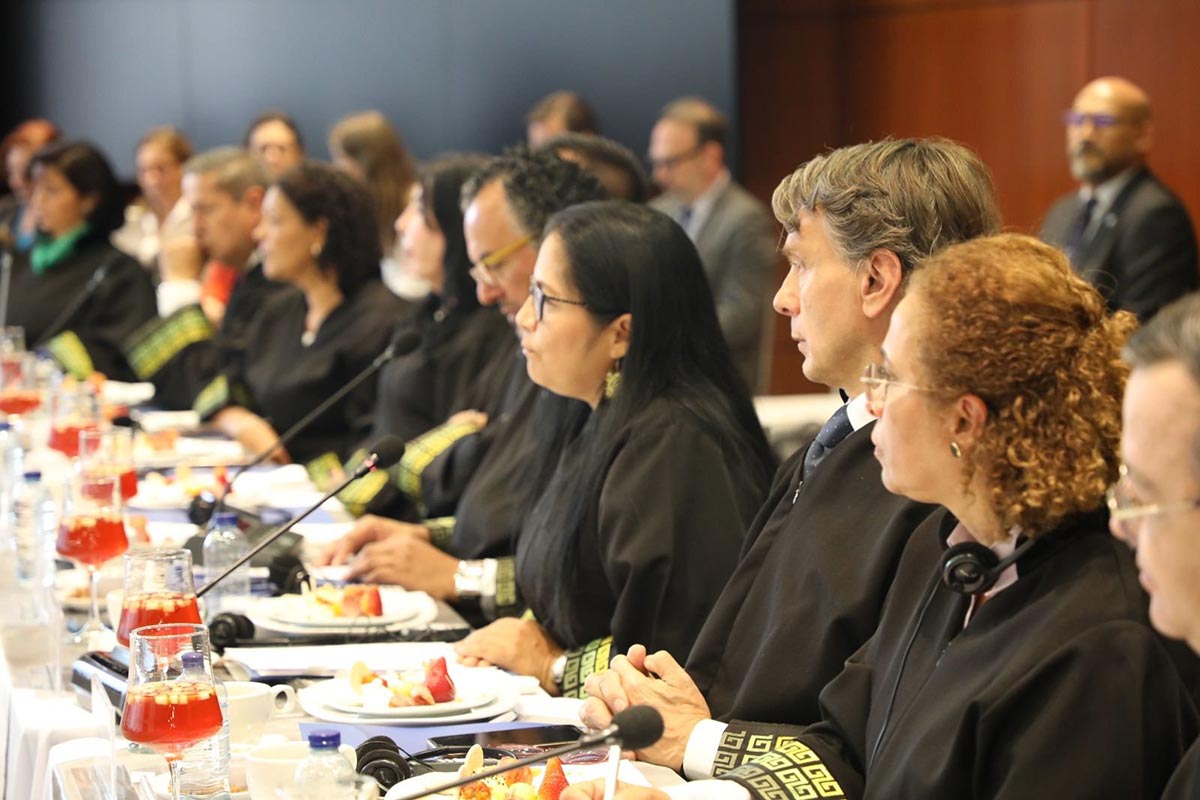
The original model, and sin
The opacity of this job offer stands in stark contrast to the mechanism under which the JEP justices were themselves selected, which was internationally recognized as an example of transparency and meritocracy. In a public process that lasted three months, citizens were able to consult the résumés and motivations of 2,047 applicants in a digital tool designed especially for the occasion, where the interviews with 78 pre-selected candidates were also published. During that time, the selection committee received almost 17,000 comments, which helped it to choose the 38 magistrates of the nascent transitional justice system.
It was a “unique but untested” mechanism that broke with the convention of a “top-down approach” to judge appointments and sought to guarantee greater "judicial independence in transitional scenarios," according to an academic article by jurist Santiago Pardo who analysed the entire selection process. And that, indeed, broke with the commonplace practice in Colombia’s judicial branch of a horse-trading known colloquially as "I choose you, you choose me".
Beyond the 36 auxiliary magistrates, the unease over this job offer constitutes a new stumbling block for a special court that ironically sought with it to correct an imbalance in workloads that dates back to when the institution was born.
In circumstances that aren’t clear, the justices of the JEP’s second instance - confusingly called the 'tribunal' - reserved the largest teams of legal officials for themselves, replicating the institutional design of other high courts in Colombia and to the detriment of justices in the first instance chambers. By virtue of a decision signed by the JEP’s first president, Patricia Linares, she and her 19 fellow tribunal justices received a team of three senior law clerks and five law clerks, even though it would take several years for them to receive cases precisely because their rulings are based on the decisions that come to them from the chambers. Meanwhile, the 18 justices of the three chambers – where most of the work of the JEP has been concentrated until now – received six law clerks and no senior law clerks.
Under pressure
This original sin strained relations within the JEP and had consequences for the three chambers, which were soon swamped with work. One of them, the Amnesty Chamber - which defines the legal situation of former FARC rebels - was so overloaded that the State Council declared it to be in an unconstitutional state of affairs, one of the major reproaches in the Colombian legal system. The Acknowledgment Chamber, which leads the investigations and identifies those most responsible, has presented indictments in only four of its seven initial macro cases. And although the JEP created temporary solutions, such as a scheme called 'vertical mobility' where the tribunal justices lent some of their officials to their chamber colleagues, this doesn’t guarantee stable teams and hasn’t been able to solve the congestion – and created possible risks going forward such as many of them having to recuse themselves from cases in which they worked once these move up. Last year it finally reinforced the chamber justice’s teams with several new positions.
All of this has triggered fears that the JEP will struggle to comply with its 10-year time period for filing indictments and 15 years for issuing its decisions, despite having a larger staff than the other Colombian high courts. Chairman Vidal underscored that these two decisions, expanding chamber teams and hiring more senior law clerks, will allow them to comply with "the strict temporality" of the JEP without requesting extensions.
A long-warned problem
The irony is that the JEP received several warnings throughout its six years of operation that its workloads were poorly distributed.
Before it opened its doors, the Colombian government contracted a load-flow study in which, after eight months of process simulations, a team of Universidad de los Andes industrial engineers and lawyers predicted that most of the work within the first few years would fall on the three entry chambers and then move up to the tribunal, according to three people familiar with it. Under that logic, the study - which isn’t public - advised having mobile teams who could be located where most needed and thus prevent bottlenecks. "The JEP is like a football stadium seating 80,000 people but very few entrance gates. We envisioned a floating staff that belonged to all the justices and moved wherever the work is," Néstor Raúl Correa, the JEP’s first executive secretary and a former high court justice himself, told Justice Info.
Similar warnings came from outside. "We need an institutionally strong and flexible JEP, adaptable to the different workloads that chambers and sections will have," jurist Rodrigo Uprimny, an advisor to the government's negotiating team in the peace talks who worked in the Constitutional Court for a decade, also recommended in 2018. Just like the load-flow study, he advocated for a model more similar to that of the Inter-American Court of Human Rights, with a pool of lawyers at the service of the entire court.
In the end, the JEP's management team disregarded this advice and chose the more hierarchical model that has prevailed in Colombian courts. “It was predictable that the massiveness of the crimes would overwhelm the JEP’s capacity; however, the organizational design made it worse (...) The staff plant for the jurisdiction does not reflect the procedures and the workloads faced by its different organs in time,” a 2022 unpublished Oxford University study also warned.
That original sin is the one that the JEP is belatedly trying to correct - with a non-transparent job call that has generated much malaise and whose new senior law clerks will not be at the service exclusively of the chambers, but also of the tribunal (although according to Vidal, their main priority will be to "strengthen investigation" and will only be assigned to tasks identified as "strategic needs" in the court's recent four-year plan). In other words, the solution to solve the original sin could end up perpetuating it.
This article was enlarged on March 2, 2024 to add information provided by Martha Lucía Zamora regarding her now closed investigations in the case brought against her by Sigifredo López and her quote on her decision to ask the JEP not to assign her to the kidnapping case.


